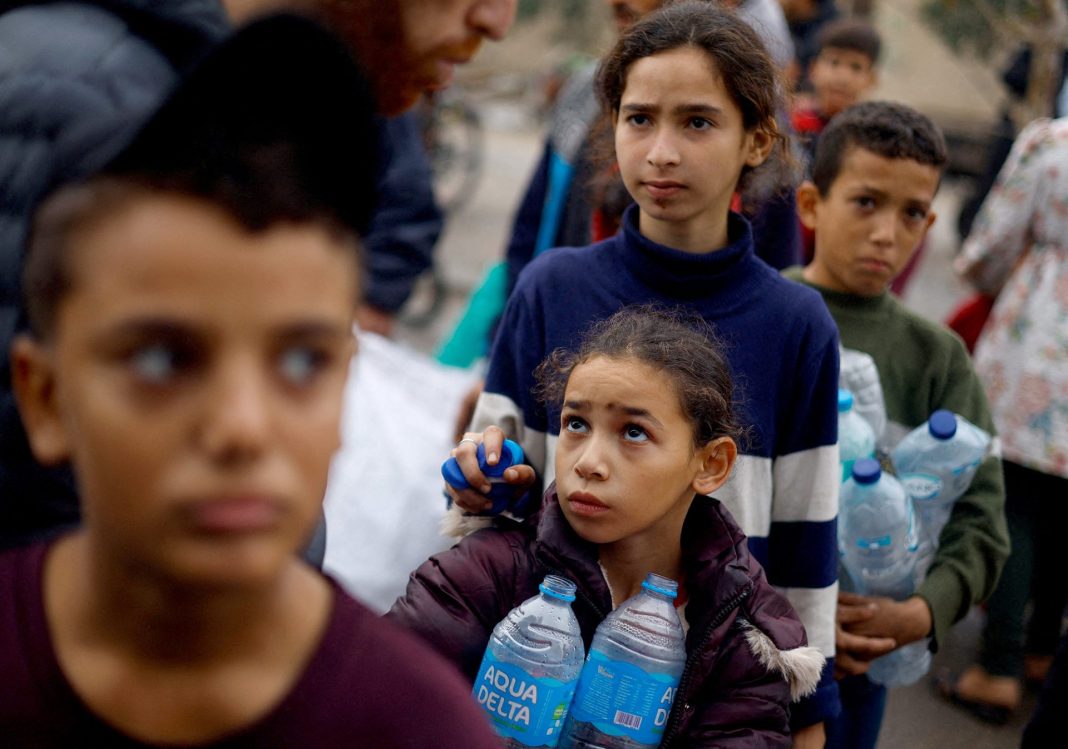“Recently displaced children in the southern Gaza Strip are accessing only 1.5 to 2 litres of water each day,” the statement said.
It added that 15 liters are the minimum standard per day for drinking, washing, and cooking, while three liters are the minimum for survival alone.
UNICEF reported water and sanitation services in Gaza are “at the point of collapse,” which could have severe repercussions on children.
“The impact of this on children is particularly dramatic because children are also more susceptible to dehydration, diarrhea, disease and malnutrition, all of which can compound to present a threat to their survival,” UNICEF said.
“Concerns of waterborne diseases such as cholera and chronic diarrhea are particularly heightened given the lack of safe water, especially following this week’s rains and flooding,” added the statement.
Last week, the World Health Organization reported it had recorded about 165,000 cases of diarrhea amongst children under the age of five, which it described as “much more” than normal.
“Without safe water, many more children will die from deprivation and disease in the coming days” UNICEF Executive Director Catherine Russell stated.
Israel has previously said it is “facilitating various humanitarian aid initiatives” in Gaza, including “the supply of water directly from Israel”.
A United Nations agency also said Tuesday half of Gaza’s population is starving and residents are often going entire days without eating under Israel’s bombardment of the enclave of more than 2 million people.
“The amount of aid crossing into Gaza does not meet a fraction of the needs,” the World Food Programme (WFP) said in a post on X, formerly Twitter.
Just 10% of the food required for Gaza has entered the strip over the past 70 days, Corinne Fleischer, WFP Regional Director for the Middle East, North Africa and Eastern Europe, stated in an interview with Canada’s CBC News on Sunday.
Two weeks ago, WFP warned that 97% of Palestinian households in the north of the strip and 83% in the south reported inadequate food consumption.
Since then, tens of thousands of displaced Palestinians have arrived in Gaza’s southernmost governorate of Rafah in search of safety, according to the United Nations Office for the Coordination of Humanitarian Affairs (OCHA)
“Thousands of people [in Rafah] line up before aid distribution centres in need of food, water, shelter, and protection, amid the absence of latrines and adequate water and sanitation facilities in informal displacement sites and makeshift shelters,” OCHA added.
Jagan Chapagain, secretary general and CEO of the International Federation of Red Cross and Red Crescent Societies, also warned the situation in Gaza is “desperate”.
“Aid delivery is becoming increasingly more difficult due to the ongoing shelling and lack of fuel and supplies.”
